The Chronicle

Nqobile Tshili, Chronicle Reporter
MORE than 60 000 Bulawayo residents have been affected by theft and vandalism of electricity infrastructure at Epping Forest and Rochester aquifer in Nyamandlovu resulting in the city pumping 3 megalitres (ML) per day from the targeted 20ML per day.
The government, through the Zimbabwe National Water Authority (Zinwa), rehabilitated boreholes at Epping Forest and Rochester to improve Bulawayo’s water situation in 2020.
The aquifer is meant to complement Bulawayo’s supply dams, whose water levels have remained low.
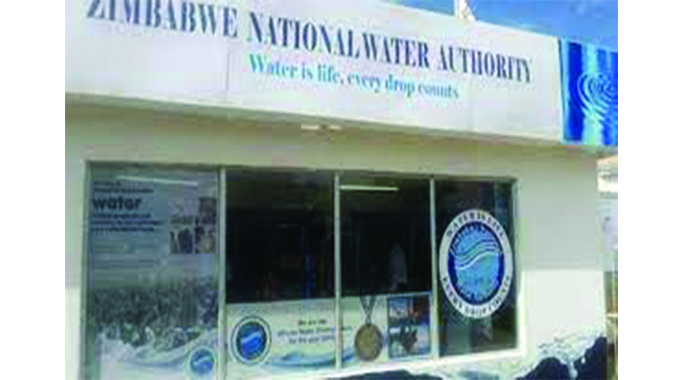 Zimbabwe National Water Authority (Zinwa)
Zimbabwe National Water Authority (Zinwa)The Epping Forest boreholes were rehabilitated at a time when Bulawayo was experiencing its worst water crisis in the city’s modern history.
The water crisis resulted in the death of 14 residents in Luveve suburb due to diarrhoea-related illnesses.
Bulawayo is experiencing another water crisis which has seen the council imposing a 72-hour weekly water-shedding programme.
While Government’s intervention was effective as the city received up to 20ML from Nyamandlovu projects, vandals are reversing the gains that the city was enjoying.
Vandalism of the electricity infrastructure has been described as a national security threat with urgent interventions being made.
Lands, Agriculture, Fisheries, Water and Rural Settlement Minister Dr Anxious Masuka, Energy and Power Development Minister Zhemu Soda, Local Government and Public Works Minister July Moyo, Home Affairs and Cultural Heritage Deputy Minister Ruth Maboyi and Bulawayo Provincial Affairs and Devolution Minister Judith Ncube yesterday toured Nyamandlovu Epping Forest and Rochester areas to assess the damage on the infrastructure.
Reality hit the ministers as they came across one of the destroyed electricity transformers which was removed and dumped on the ground, with its parts stripped off.
After the tour, the ministers converged at a hotel in the city to strategise on the way forward.
Briefing the media after the closed-door meeting, Dr Masuka said the theft of copper cables and vandalism of transformers is a national threat and the Government is taking decisive action.
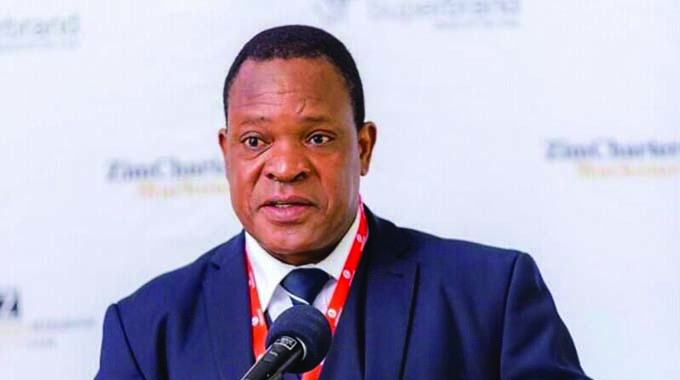 Lands, Agriculture, Fisheries, Water and Rural Settlement Minister Dr Anxious Masuka
Lands, Agriculture, Fisheries, Water and Rural Settlement Minister Dr Anxious MasukaHe said Bulawayo’s water supplies are seriously constrained.
“There is an installed capacity of 26 megalitres per day/ML and an operational capacity of 20ML/day for sustainability. The Rochester/Epping Forest system is only able to convey to the City of Bulawayo a measly 3 ML/day because of vandalism of transformers of cables that supply boreholes and theft of copper lines. This certainly has become unacceptable, it’s a major security threat,” he said.
Dr Masuka said he brought the inter-ministerial team so that they find lasting solutions to the problem.
He said within the next week he expects that Bulawayo should start receiving 20ML/day but this will be done only after security reinforcement.
“This is the exercise that we will complete within the next seven days.
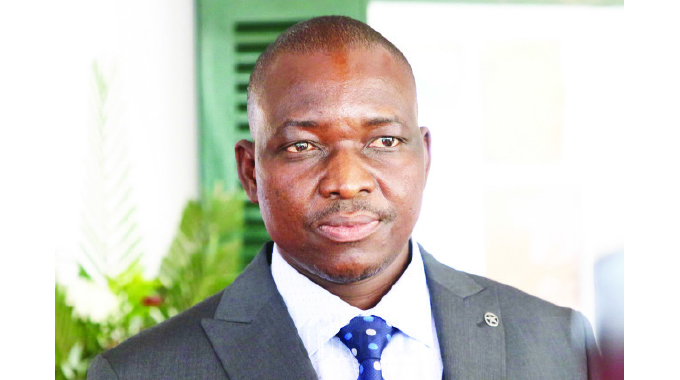 Energy and Power Development Minister Zhemu Soda
Energy and Power Development Minister Zhemu SodaAnd it consists of an array of interventions which the public will be able to see but will enhance security in the area and also restore everything to functionality so that we can pump the 20ML/per day by Tuesday next week,” he said.
Dr Masuka said he was not in a position to comment on some of the adopted strategies as they were of a security nature.
He said the public should expect arrests of culprits while community awareness programmes will be rolled out.
Dr Masuka said physical barriers will also be mounted to deter criminals from tampering with power infrastructure.
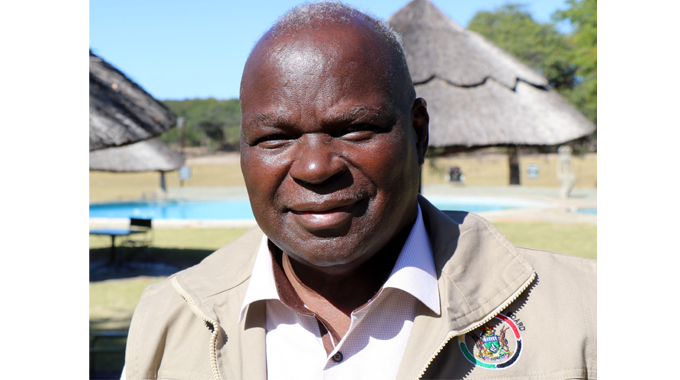 Local Government and Public Works Minister July Moyo
Local Government and Public Works Minister July Moyo“This level of vandalism cannot go unchallenged so the public and whoever is involved is challenged. We have had 17 transformers vandalised. And as they were installing new ones, vandalism of those that they had replaced had commenced and that is unacceptable,” said Dr Masuka.
He said the Nyamandlovu water project is a key short-term solution to Bulawayo’s water crisis as Government works to complete the National Matabeleland Zambezi Water Project through the construction of the Lake Gwayi Shangani and subsequent drawing of water from the same.
“The Nyamandlovu water supply system was a major investment by the Government as a stop-gap measure for the supply of water to Bulawayo while we build this long-term one which is the Lake Gwayi Shangani which is now at 70 percent completion. And also, the conveyance of the system which is the 245KM pipeline which we are now attending to,” he said.
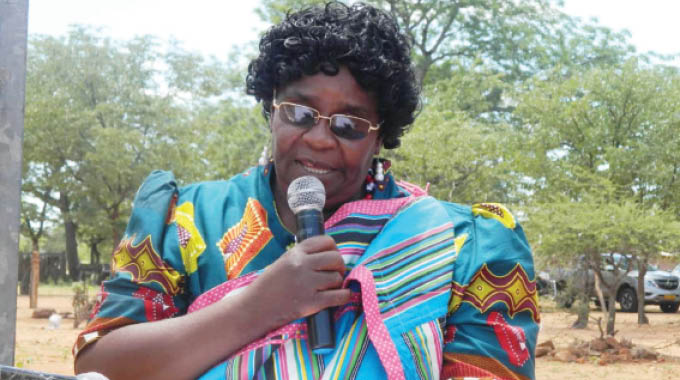 Home Affairs and Cultural Heritage Deputy Minister Ruth Maboyi
Home Affairs and Cultural Heritage Deputy Minister Ruth MaboyiDr Masuka said Government will make sure that the measures that it has put in place are working and provide Bulawayo residents with water.
Minister Ncube said experts from council said at least 60 000 residents are directly affected by the vandalism of infrastructure.
She said it was disheartening to witness some of the vandalised infrastructure. Minister Ncube said communities should take ownership of the infrastructure that is meant to benefit them.
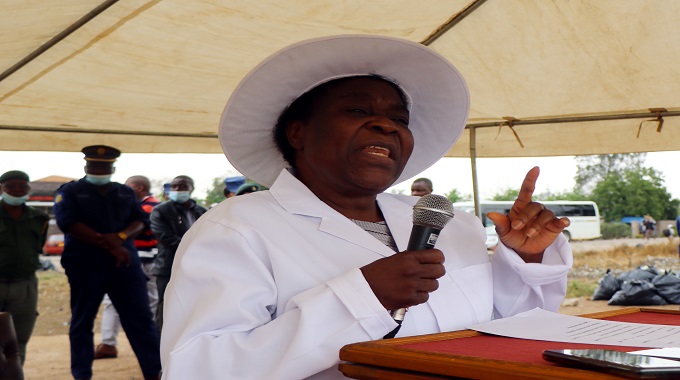 Bulawayo Provincial Affairs and Devolution Minister Judith Ncube
Bulawayo Provincial Affairs and Devolution Minister Judith Ncube“We are told that over 60 000 people are affected as a result of this vandalism. We agreed in this meeting that we should conduct awareness campaigns, maybe some of the perpetrators take it lightly but without water, residents suffer.
“We have seen the outbreak of waterborne diseases and recently we had so many residents that were affected by diarrhoea. In 2020 we lost a lot of people due to the shortage of water. We need to engage all stakeholders to take responsibility for protecting the city’s infrastructure,” said Minister Ncube. [email protected]
Article Source: The Chronicle
